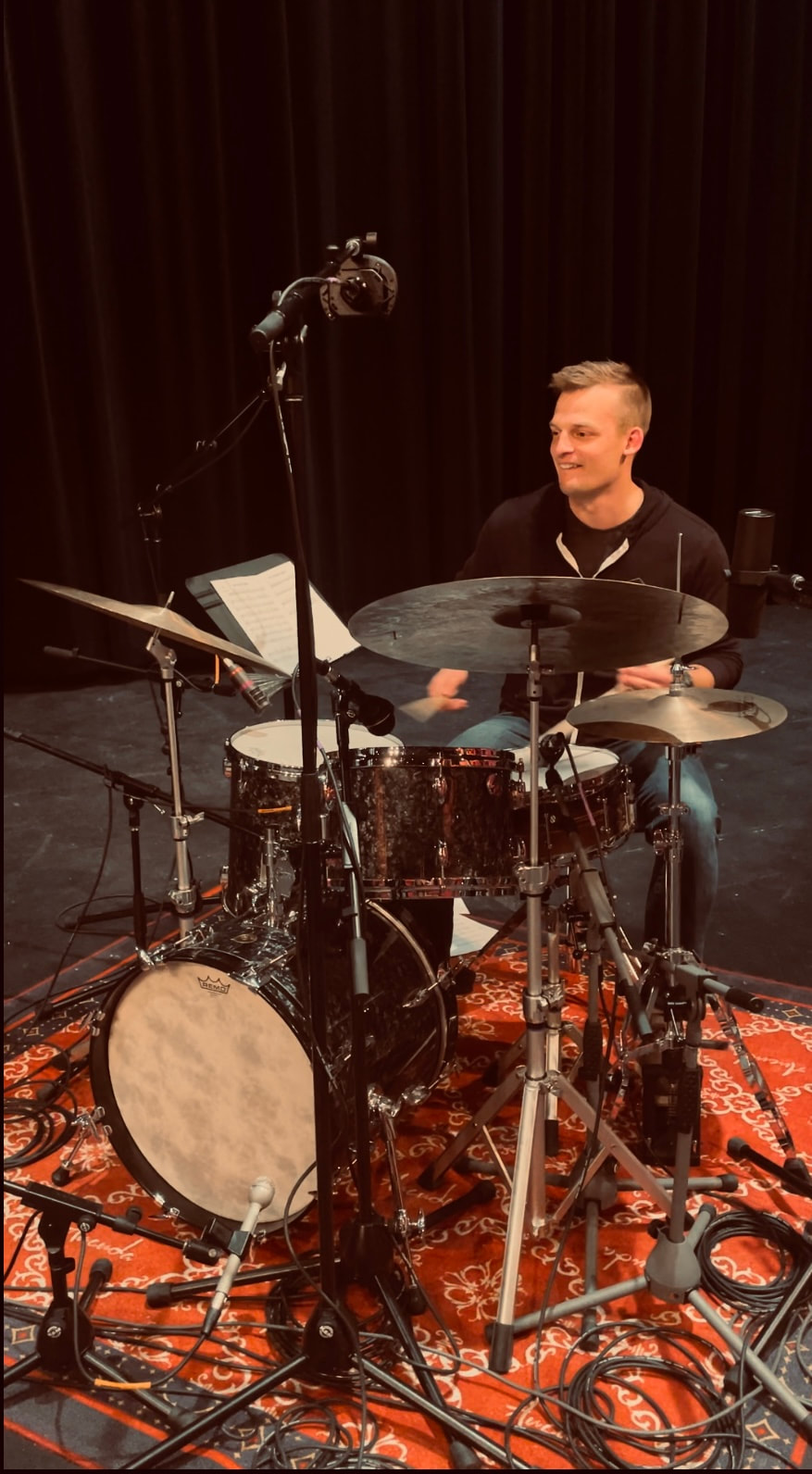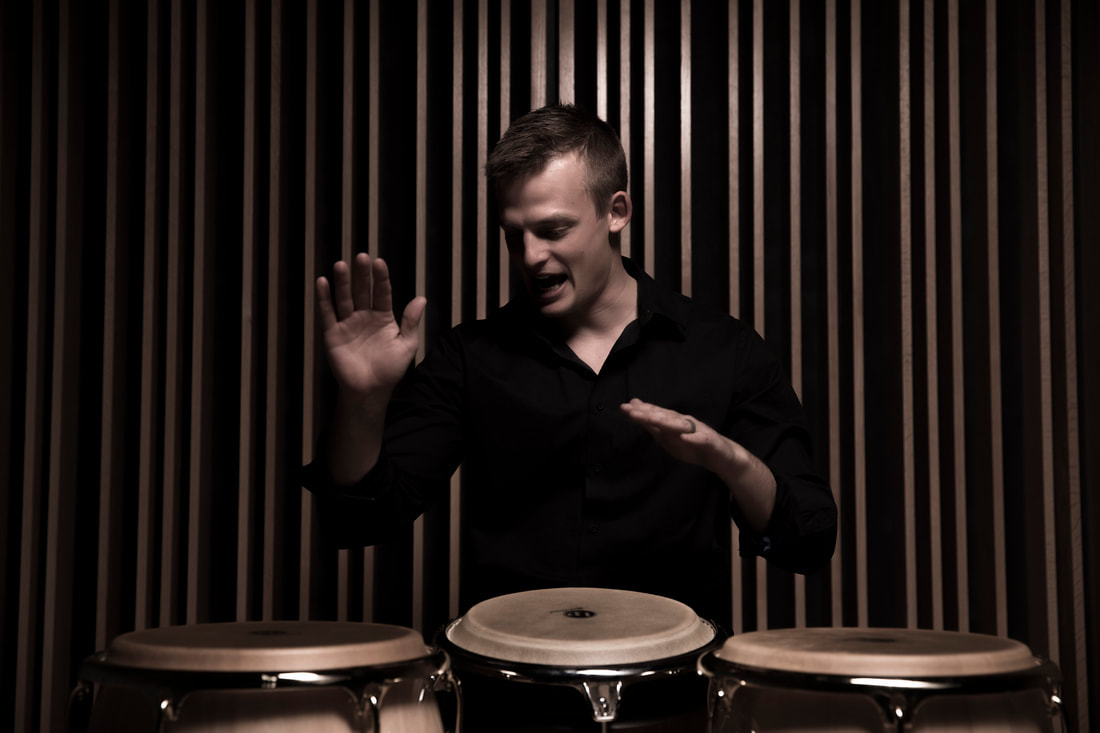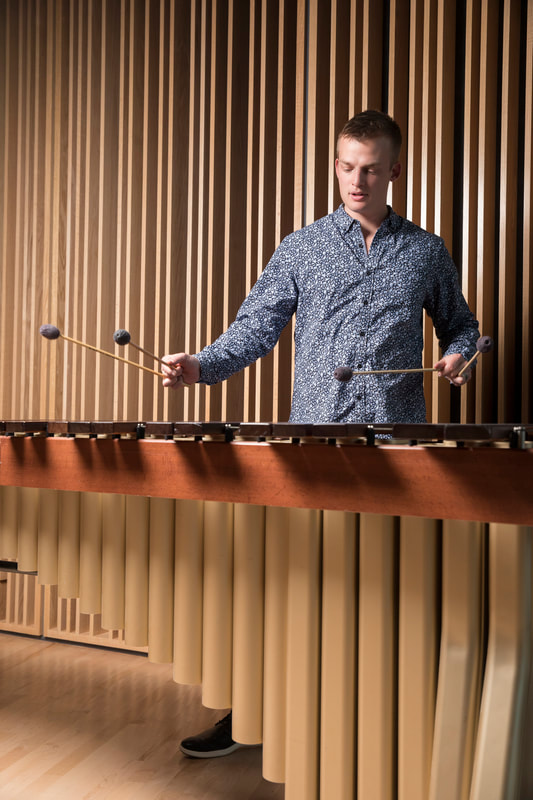|
Andy Wheelock is a Drummer, Percussionist, Composer, and Educator. Wheelock is an active performer and can be heard performing regularly around the Front Range. He is a founding member of the Live Edge Trio, the Whee3trio, and KEWO, and can be heard playing with the Gonzalo Teppa Quintet, Ben Markley, New Stream Brass Ensemble, the University of Wyoming Jazz Faculty, and the Cheyenne Symphony. Wheelock has had the honor of sharing the stage with Adam Birnbaum, Bill O’Connell, Craig Handy, Ernie Watts, SK Kakraba, Jorge Glem, Bobby Shew, Chuchito Valdés, Joel Frahm, Henry Linarez, Bob Bowman, Ivan Trevino, and William Moersch.
As a composer and arranger, Wheelock writes regularly for his own recording projects as well as big bands, percussion ensembles, Samba Bateria’s, and Pan-Afro-Latin Ensembles. His debut record as a leader, View From Here ft. Ernie Watts, has received outstanding reviews and ample air time around the country. As a clinician and adjudicator, Wheelock has been a guest artist at Ohio State University, Central Michigan University, Friends University, Columbus State University, Washburn, Hope College, University of Wisconsin-Madison, Wichita State, and the University of Illinois. |
|
"My teaching philosophy is based on the pedagogical theory of progressivism; in that I believe students’ interests must be a driving force of their learning experience. Once a student truly understands their interests and goals, I believe passion follows. Once the 'fire' has been lit, I strive to inspire my students to find new limits within themselves and encourage them to explore and develop their own unique musicality. I do this by emphasizing strong fundamental techniques as well as honest and specific self-assessment. Music as an art and industry, is constantly changing and I believe that understanding this is key to providing students with a viable musical education. I try to expose my students to as many musical styles, experiences, practices, and theories as possible in an effort to prepare them for such an industry."
|



